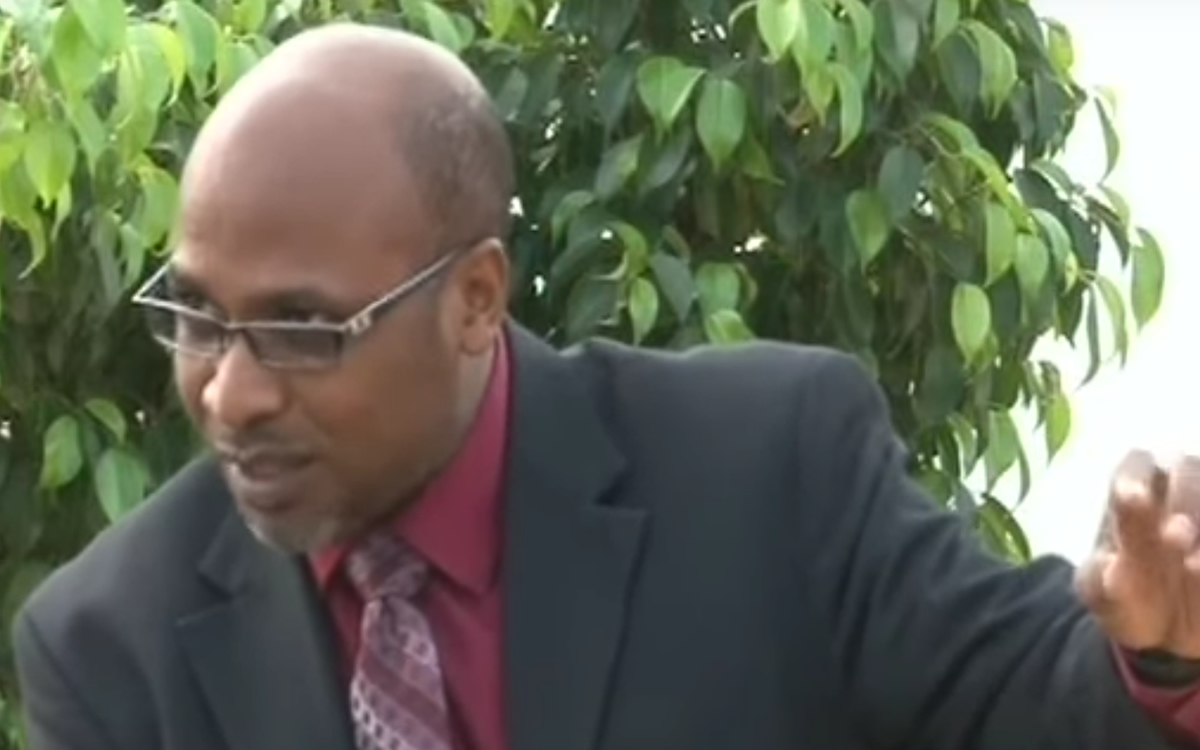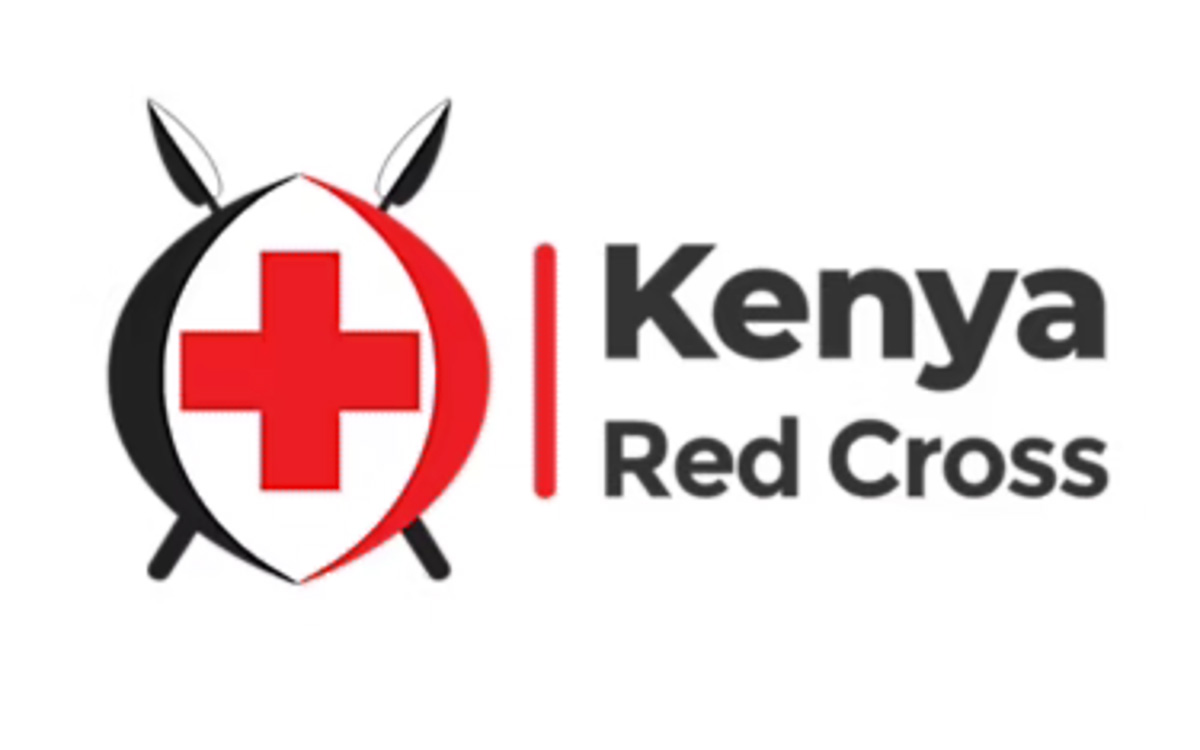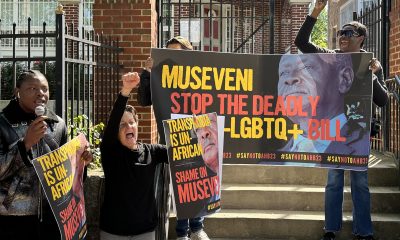Africa
Anti-LGBTQ Ugandan pastor defends Anti-Homosexuality Act
Martin Ssempa made ‘Eat Da Poo Poo’ sermon in 2010

Ugandan pastor and anti-LGBTQ activist Martin Ssempa became infamous in 2010 when he endorsed the idea of criminalizing consensual same-sex sexual acts with up to life in prison or even death in his “Eat Da Poo Poo” sermon.
He was a strong supporter of the 2009 “Kill the Gays” bill that eventually passed in 2013 under its new name: The Anti-Homosexuality Act. The country’s Constitutional Court rejected the law in 2014, but a new bill passed in the Ugandan Parliament in May. The U.N. Human Rights Office stated it is “appalled that the draconian and discriminatory anti-gay bill is now law” and that this law is a “recipe for systematic violations” of LGBTQ people.
Ssempa in an interview with the Washington Blade said Ugandans in general reject LGBTQ people and overwhelmingly support the law that President Yoweri Museveni signed on May 29.
Ssempa denied the law is too extreme, stating many Islamic countries in the Middle East have an automatic death penalty for LGBTQ people. Ssempa said the West’s focus on the law is a form of racism.
Ssempa’s claim that Ugandans overwhelmingly support the Anti-Homosexuality Act is disputed — an ILGA poll from 2017 found 59 percent of Ugandans agreed that LGBTQ people should enjoy the same rights as straight people, while 62 percent said transgender individuals should be protected from discrimination.
Social attitudes have actually shifted towards acceptance of LGBTQ people over the past decade.
A 2007 survey showed 96 percent of Ugandans believe that LGBTQ relationships should be prohibited by law. The ILGA poll found that number dropped to just 54 percent a decade later.
When asked about why many Africans vehemently reject LGBTQ people, Ssempa said European and American politicians use deception to try and change the culture and mentality of Africa. He believes the rise of anti-LGBTQ laws in Nigeria, Tanzania, Kenya and Uganda is a reaction to the West — a rejection of colonialism. Ssempa and other anti-LGBTQ activists maintain being LGBTQ is a choice or identification with an ideology, instead of accepting the fact that people are born LGBTQ or feel the need to change their gender to one with which they feel comfortable.
On the topic of gender affirmation surgery, he stated “what gives the White man the right to say ‘cut off your breasts and genitals’ as long as you give it a new name of transgenderism?” He said he rejects trans people and said that there is a paradox because Europeans and Americans scold Africa for performing female genital circumcision, yet are trying to push acceptance of trans individuals.
Pepe Julian Onzeima is a leading human rights activist who came under attack in 2012 when Ssempa barged onto the set of “Morning Breeze,” a Ugandan television talk show, and began to interrogate and mock him for his activism in Africa as a trans man.
After reaching out to Ssempa to ask what is become of Onziema and other trans Ugandans, Ssempa showed indifference to the situation. Ssempa added anyone who is against the “Ugandan way of life” or doesn’t feel safe under the new law can leave Uganda.
When pushed further to answer what LGBTQ people should do if they wish to stay in Uganda instead of fleeing, Ssempa noted all of them must make the decision to sit down with village leaders for guidance to change their “thoughts.”
“Europeans think individual thought is how people make decisions. Africans don’t think ‘I like this person, I want to marry.’ No, we have rules! We can’t marry specific people. There are taboos, and we have specific rules and guidelines. It is our elders who give guidance and advice,” Ssempa added.
Ssempa said being LGBTQ is a decision or lifestyle that one chooses, and so-called conversion therapy and discussions with community leaders can guide them towards a “correct path.”
Since Museveni signed the Anti-Homosexuality Act, videos have emerged from Uganda that show trans people being paraded naked in public as a form of humiliation and public shaming, while community members jeer and ridicule them in the background. Many LGBTQ people across Uganda face eviction, unemployment and expulsion from clans with the support of the new law. Many feel emboldened to attack and violate the human rights of LGBTQ individuals because they are not afraid of punishment for their crimes.
Activists believe the law will also damage any progress made to the HIV/AIDS epidemic in Uganda, because people will be hesitant to visit a clinic for STI testing, even if they are straight men because of the stigma surrounding HIV/AIDS and the potential to be falsely identified as LGBTQ. HIV treatment services have already dropped by 60 percent since the law’s passage.
Ssempa was adamant that attempts to advance LGBTQ rights in Africa are a form of Western colonialism.
When asked to comment more, he said LGBTQ rights in Uganda for which Western human rights NGOs advocate is a way to keep Africa down because of White nationalism.
“What gives a man the right to turn a human vice into a human right?,” he said.
The Blade asked Ssempa if he had a message for Americans and Europeans.
“They need to worry about socioeconomic problems there. And what’s going on over there in Amsterdam and San Francisco,” he said. “Stop obsessing over what needs to be done for change in Africa.”
Kenya
Kenya Red Cross-owned hotel to host anti-LGBTQ conference
Speakers from US, European countries to participate in May 12-17 gathering

Plans to host a family values meeting next month in a 5-star hotel in Nairobi that the Kenya Red Cross Society co-owns have sparked an uproar among local queer rights groups.
The groups accuse the Kenya Red Cross of violating its Global Fund commitment of protecting key populations by allowing its Boma Hotel to host an “anti-gender and anti-LGBTQ” conference.
Influential guest speakers from the U.S., the Netherlands, Spain, and Poland will preside over the Pan-African Conference on Family Values that will take place from May 12-17. The Kenyan advocacy groups say these speakers’ organizations are globally recognized for undermining LGBTQ rights.
“As the principal recipient of Global Fund in Kenya, hosting this event contradicts (the) Red Cross’s humanitarian mission and threatens the safety and dignity of people living with HIV, women and LGBTQ+ individuals, the communities that Kenya Red Cross Society has long committed to supporting,” the queer rights groups state.
The LGBTQ groups that have criticized the Kenya Red Cross include Upinde Advocates for Inclusion, the Initiative for Equality and Non-Discrimination, and Gay and Lesbian Coalition of Kenya. They have also launched an online signature collection drive to compel the Kenya Red Cross to withdraw the hotel from hosting the “Promoting and Protecting Family Values in Challenging Times”-themed conference.
“The event’s so-called ‘family values’ narrative is a smokescreen for policies that push hateful legislation and promote death, discrimination, femicide, gender-based violence, and restrict fundamental freedoms across Africa,” the groups said.
The pro-life Western organizations that are scheduled to participate in the conference include Family Watch International from the U.S., CitizenGo from Spain, the Ordo Luris Institute from Poland, Christian Council International from the Netherlands, the New York-based Center for Family and Human Rights (C-FAM), and the Foundation for American Cultural Heritage. Their local counterparts include the National Council of Churches of Kenya, the Kenya Christian Professionals Forum, the Africa Christian Professionals Forum, and the Evangelical Alliance of Kenya.
C-FAM President Austin Ruse; Family Research Council Vice President for Policy and Government Affairs Travis Wever; Global Life Campaign Executive Director Thomas W. Jacobson; and the Rev. Ricky Chelette, executive director of Living Hope Ministries, Inc., and president of the Institute of Biblical Sexuality are among the U.S. guest speakers. Other participants include Henk Jan van Schthorst, president of Christian Council International’s board of directors, Ordo Luris Institute President Jerzy Kwasniewskie and his colleague, Rafal Dorosinski, director of the group’s Legal Analysis Center.
The Kenyan groups through their online petition — “Tell Red Cross Kenya Not to Give Hate a Platform” — has so far raised more than 1,000 of the 10,000 signatures they hope to collect. The petition is addressed to Red Cross Kenya Secretary-General Ahmed Idris and his predecessor, Abbas Gullet, who is the hotel’s director.
“We call on you to immediately cancel this booking and publicly reaffirm Red Cross’ commitment to human rights, health and inclusivity,” the petition reads. “Failure to act will raise concerns about whether (the) Red Cross can still be trusted by the community to lead with empathy and fight for their rights.”
The Kenya Red Cross, however, maintains the Boma Hotel is a separate entity, even though public records indicate it is one of the facility’s shareholders.
The LGBTQ groups note the hotel should be a safe space that promotes inclusion, not platforms that enable “harmful gathering” for hate and exclusion by “dangerous groups.”
“By providing a venue for this event, Red Cross directly enables a platform for hate and discrimination — a stark contradiction to the values of inclusivity, humanity, and nondiscrimination that the organization claims to uphold,” they said.
The organizations further warn that proceeding to host the conference threatens the relationship between the Red Cross and the marginalized communities who have long depended on the humanitarian organization for support and protection. CitizenGo has nonetheless criticized the LGBTQ groups, which it describes as “radical activist groups” for “trying to silence a pro-family event” and asked the Kenya Red Cross and the Boma Hotel not to back down.
“These groups are calling the event ‘hateful’ because it affirms the natural family — marriage between a man and a woman — and the dignity of every human life, including the unborn,” Ann Kioko, the group’s campaign director for Africa and the U.N., said.
Through an online counter signature collection drive, Kioko holds CitizenGo and other groups won’t be intimidated, silenced or apologize to the queer rights groups for defending “our families, our faith and our future”.
“The real goal of these foreign-funded activist groups is to impose LGBTQ and gender ideologies on Africa — ideologies that have led elsewhere to the confusion of children, the breakdown of family structures and the rise of sexual libertinism that results in abortion, STIs and lifelong emotional and psychological trauma,” Kioko stated.
Africa
LGBTQ activists in Africa work to counter influence of American evangelicals
Lawmakers continue their crackdown on queer rights

American far-right evangelical organizations fund African MPs and religious groups and support their advocacy efforts against homosexuality.
The support for the two influential groups on the continent has contributed to increased homophobic rhetoric for conservative family values through religious teachings and public policy. Open for Business, a coalition of leading global organizations that champion LGBTQ inclusion, revealed this trend in its latest report that surveyed the East African countries of Kenya, Uganda, Tanzania, and Rwanda.
“The anti-LGBTQ+ agenda driven by Christian groups in Kenya and Uganda has received significant funding and support from foreign anti-rights groups, particularly from U.S. far-right evangelical organizations,” the report states.
The two nations, along with Tanzania, have had heightened curtailing of queer rights in recent years through legislation and religious protests. Homosexuality remains criminalized in the three countries, with varied jail terms of not less than 10 years.
“There is much misinformation and disinformation being circulated in Kenya about LGBTQ+ issues — churches are behind much of this, and they leverage selective interpretations of religious teachings to stir up anti-rights sentiments,” the report reads.
It adds religious groups have attained greater influence with their homophobic campaigns under President William Ruto, who is Kenya’s first evangelical Christian head of state.
The American far-right evangelical churches are part of the New York-based World Evangelical Alliance, whose global believers are considered “incredibly diverse and vibrant people of faith.”
“They are bound together by spiritual convictions that they consider ‘non-negotiable’ while acknowledging a wide variety of expressions in non-essential matters such as their style of worship,” the Rev. Leon Morris, the founder member and former chairman of Evangelical Alliance of Victoria, states on WEA’s website.
The religious groups under the Kenya Christian Forum, in partnership with Linda Uhai Consortium (or Protect Life in Swahili) composed of pro-life organizations, late last month held their annual march in Nairobi, the country’s capital. Opposition to LGBTQ rights was among the agenda items.
Some anti-homosexuality placards that march participants held read, “Homosexuality is abnormal,” “Rainbow belongs to God,” “No to Western cultural imperialism, yes to family values,” and “In the beginning God made them; male and female.” The organizers also criticized the Kenyan courts over their recent rulings in favor of the queer community, such as allowing the National Gay and Lesbian Human Rights Commission to register as a non-governmental organization.
The African Inter-Parliamentary Conference on Family Values and Sovereignty is a caucus of African MPs that American far-right evangelical organizations support to drive anti-LGBTQ policies in their countries.
The group held its second conference in Entebbe, Uganda, last May. The definition of sex and sexuality and their impact on LGBTQ issues were among the topics that delegates from more than 20 countries discussed.
The three-day conference that Ugandan Parliament Speaker Anitah Among and Henk Jan Van Scothorst, director of the Christian Council International, sought to curb homosexuality. The delegates also resolved to have the African Caribbean Pacific and European Union Economic Partnership, also known as the Samoa agreement, reviewed for undermining the sovereignty of African governments over LGBTQ rights and related “human rights” issues.
The far-left government officials and queer lobby groups from the U.K. and other Western countries, meanwhile, are engaging with LGBTQ activists in Africa to counter American evangelical organizations’ anti-homosexuality campaigns.
British officials, led by Equalities Minister Nia Griffith, in February met with Sexual Minorities Uganda Executive Director Frank Mugisha and Erick Mundia, a senior policy advisor for Ipas Africa Alliance, a Kenya-based abortion rights advocacy group.
“As part of our Queering Atrocity Prevention program, which seeks to center LGBTQI+ rights and risks as part of atrocity prevention and wider peace and security, our team held a parliamentary roundtable exploring the implications of transnational far-right organizing for global LGBTQI+ rights and how the UK parliament can respond,” the statement reads.
Klara Wertheim, head of global programs at Stonewall, and Farida Mostafa, queering atrocity prevention manager of Protection Approaches, were among the other representatives of queer rights organizations who participated in the roundtable with highlighted “the implications of transitional far-right activity for global LGBTQI+ rights.”
“Discussions with MPs, Lords, parliamentary staff and civil society representatives centered on tactics used by far-right actors to disrupt democratic rights-based systems,” reads the statement. “The impacts of these malign efforts on sexual and gender-based rights in the UK and abroad, and how parliamentary actors can contribute to stemming these trends in their parliamentary work.”
Cameroon
Cameroonian LGBTQ activist shares journey of resilience, healing, and authenticity
Bandy Kiki recently married her Nigerian partner

Bandy Kiki, a Cameroonian LGBTQ activist and media personality who currently lives in the U.K., has married Jenny, her Nigerian partner.
Kiki, who came out as gay in 2017, said in a March 25 post that she had become “Ijaw by marriage.”
Ijaw is a tribe in Nigeria from where Jenny originates.
“For many people, celebrating love is expected, even assumed. But for those of us in the LGBTQ+ community, it is often questioned, as though our love needs justification,” Kiki told the Washington Blade in an exclusive interview.
And hers has been a journey of resilience, healing, and authenticity.
In this exclusive interview, Kiki shares her story as a gay person growing up in a Cameroonian society that considered, and still considers gay relationships as fundamentally flawed, and patently sinful.
“Facing societal perceptions and expectations required both resilience and self-discovery,” she said.
“In the beginning, it felt like I was constantly being asked to justify my identity, my relationship, and even my joy. There were moments of doubt, isolation, and deep frustration,” Kiki told the Blade.
“Over time, I have grown more confident in who I am. I have found community, chosen family, and a sense of self that no longer depends on anyone else’s approval.”
Here are some excerpts of the conversation.
BLADE: What inspired you to take this step and celebrate your love openly, despite the prevalent social and cultural stigmas about gays in your country of origin, Cameroon?
KIKI: When I was asked why I chose to celebrate my love openly, I couldn’t help but wonder: Would I be asked that if I weren’t queer? For many people, celebrating love is expected, even assumed. But for those of us in the LGBTQ+ community, it is often questioned, as though our love needs justification.
Coming from a culture where being LGBTQ+ is still heavily stigmatized, I spent a long time feeling like I had to hide or shrink parts of myself just to be accepted. That is why marrying my partner is not just about legal rights. It is about joy, truth, and visibility. It is about showing that our love is just as real, just as deserving, and just as worth celebrating as anyone else’s. It is about healing and choosing courage over fear.
BLADE: What does this marriage mean to you personally and culturally?
KIKI: Marriage is a fundamental human right for everyone of marriageable age, regardless of their sexuality. It is not just a legal bond but the quiet vow to grow old with someone, not by the accident of time but by choice, every day. Culturally, I see marriage as the coming together of families or the beginning of one.
BLADE: How did your love story with your partner begin?
KIKI: Our love story began in the most modern way. We met online. I was not expecting much, but from our very first conversation, something just felt easy. She quickly picked up on one thing about me. I talk about food a lot. I mean, a lot. Especially about how much I had been craving Waakye, one of my favorite Ghanaian meals.
Immediately after our first date at a restaurant, which went incredibly well, she asked me to come to her house for a surprise. Naturally, my mind wandered to certain possibilities. But when I got there, she brought out a big bag filled with takeaway bowls of Waakye she had ordered, just because I had mentioned it in passing.
In that moment, I knew this was something special. This was not just about food. It was about being heard. It was about someone who listened to what I said and cared enough to remember it. That simple gesture told me everything. She paid attention. She took action. She showed love not just in words but in thoughtful details.
That was the moment she had my full attention. And honestly, she has had it ever since.
BLADE: Describe your life at home?
KIKI: We are both women, and our marriage does not operate on traditional gender roles. There is no “husband” or “wife” in lesbian relationships, regardless of how either partner presents herself in terms of fashion or style. In our marriage, we are equal partners who show up for each other in the ways that feel right for us. I love food and I am the better cook, so I do the cooking. My wife handles the cleaning, which works perfectly because I genuinely dislike it.
BLADE: At what point in your life did it occur to you that you were more inclined to same-sex relationships, and given Cameroon’s aversion to homosexuality, how did you manage to date fellow women in those early days, and can you speak to some of the experiences you had?
KIKI: In my teens, when friends were thinking about boys, I was thinking about girls. When I finally had the courage to seek love, it was all about “understanding and response.” I would do nice things for them, hoping they would see me as more than just a friend and maybe even feel the same way about me. That way, there was always deniability if they wanted to out me. It cost me a lot in time, energy, and emotion, but in an environment like Cameroon, queer people develop different tools to cope. For the safety of those back home, I will not go into more or other details.
BLADE: How has your journey been in navigating societal perceptions and expectations?
KIKI: Honestly, it was incredibly challenging, especially right after I came out. But it has also been completely worth it. Staying in the closet might have been easier, but it would have cost me my mental health and the chance to live my truth.
Facing societal perceptions and expectations required both resilience and self-discovery. In the beginning, it felt like I was constantly being asked to justify my identity, my relationship, and even my joy. There were moments of doubt, isolation, and deep frustration.
Over time, I have grown more confident in who I am. I have found community, chosen family, and a sense of self that no longer depends on anyone else’s approval. I now accept that not everyone will understand my path, and that is okay. What matters most is that I do.
BLADE: How do you hope your story will impact others in similar situations?
KIKI: I hope my story offers comfort to those who feel alone or unseen. I want others in similar situations to know that their feelings are valid and that they are not the only ones navigating this journey. Even in difficult environments, there is strength in quiet resilience and there is hope in knowing that being true to yourself, even in small ways, is powerful. If someone can see themselves in my story and feel a little more understood, then sharing it will have been worth it.
BLADE: What advice would you give to individuals who may be struggling with acceptance or self-expression?
KIKI: Take your time. Your safety and well-being matter just as much as your truth. Self-acceptance is not a race. It is a process, and it is okay to go at your own pace. Seek out safe spaces, even if they are few and far between, and surround yourself with people who see and respect you. When you are ready, express yourself in ways that feel right for you, no matter how small. There is no one way to be you, and there is no shame in surviving.
Killian Ngala is a freelance journalist in Yaoundé, Cameroon.
-

 Federal Government2 days ago
Federal Government2 days agoHHS to retire 988 crisis lifeline for LGBTQ youth
-

 Opinions2 days ago
Opinions2 days agoDavid Hogg’s arrogant, self-indulgent stunt
-

 District of Columbia2 days ago
District of Columbia2 days agoD.C. police seek help in identifying suspect in anti-gay threats case
-

 Opinions2 days ago
Opinions2 days agoOn Pope Francis, Opus Dei and ongoing religious intolerance












